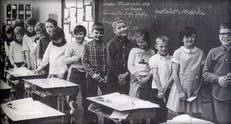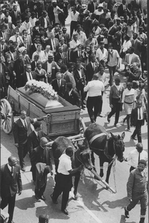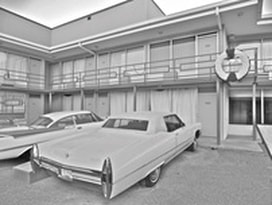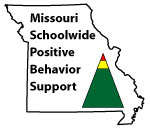While our focus, this school year, has been on the Colonial and Revolutionary eras, I like to help students apply those moments to each other and to today (as well as the future). Again, it is difficult.
What was MLK protesting in the 1960s? What were the southern and northern states fighting about in the 1860s? Did one I-Have-a-Dream speech and a long walk to a state capitol solve all the problems for black Americans? Were slaves truly freed by the Emancipation Proclamation? What did Thomas Jefferson mean when he penned, All men are created equal?
Besides the big idea of unfairly treating our fellow man, two concepts have been brought to the forefront in our class. First, the United States history is often ugly, and second, themes in history are definitely more complicated than they appear - whether talking about the Civil Rights Movement, the removal of Native Americans from their ancestral lands, or the Japanese Internment Camps during the second World War.

Look at how frankly those students speak about the issues and the connections they make. Wonder how their belief systems were developed. Who influenced them to believe such things? Notice the forlorn faces of the students who are assigned minority status. I'll warn you upfront, though, you may get angry at the teacher, and you may be upset with the choices some of the kids make. You may also be unhappy with the inappropriate names that are expressed when dealing with the topic of black people. I am in no means endorsing the use of such derogatory language today, but the brief inclusion of those words in the video wholly demonstrates a culture shift from 1970 to the present.
It was an interesting time. As I reflect on my own childhood (I was only three or four years, and a couple of states, away from being in the Class Divided.), I realize I never was in a class with an African American until college. I realize there were only a couple of black students in my elementary school and none in my middle of high schools. When my mom spoke with other moms about their feelings about busing, I didn't know what they were talking about. Not long before, Rosa Parks had inadvertently begun the Montgomery bus boycotts, the Freedom Riders had been viciously beaten in Mississippi, and nine black high school students were escorted by the military to attend a previously all-white school in Little Rock, Arkansas. King was killed when I was three, long before I became interested in American history or politics. It was a long time before I knew anything about discrimination or racism - though I never liked being called four-eyes.

I have made connections throughout history, from the Gullah Islands, Uncle Remus stories, slavery in the American colonies, and the treatment of slaves in the Deep South. I have stood in the courtroom of the infamous Dred Scott Decision right here in Missouri. I have walked in the footsteps of Abraham Lincoln, at his house in Springfield, Illinois. I have touched cannon and bayonet used during the Civil War. I have been in President Grant's house, have ridden on Huckleberry Finn's river, and have seen Martin Luther King's Ebenezer Baptist Church.

A while ago, on a different trip to Memphis, I walked to the location of King's assassination. It's always interesting to me to stand in the actual location of just about any historic event, to touch items of historic significance, and the internalize the significance of those events. Making those events come alive in the classroom takes some creativity and some serious conversation in order to pique the interest of fourth graders, but it is a possibility.
I always approach the ugly times by emphasizing the positive outcomes of those events: freedom from slavery, equal rights, and more civil treatment of people of color. Recognizing that the latter, in a big way, is wrought with continued difficulties in our country, progress has been made through generations. That should move us forward with goals of continued improvement. Encouraging a positive message for the future must involve a look at the negatives of the past.
Our history is still in the process of being written. When I consider the ongoing current world issues involving discrimination - religion, gender, orientation, and politics being among the most obvious - I realize the past, present, and future have been delicately intertwined and cannot be simplistically isolated. Our history is ugly, and without a doubt, it is complicated. As we move forward, may our children make more and more righteous and informed decisions. We're learning from the past for the sake of our future.






































